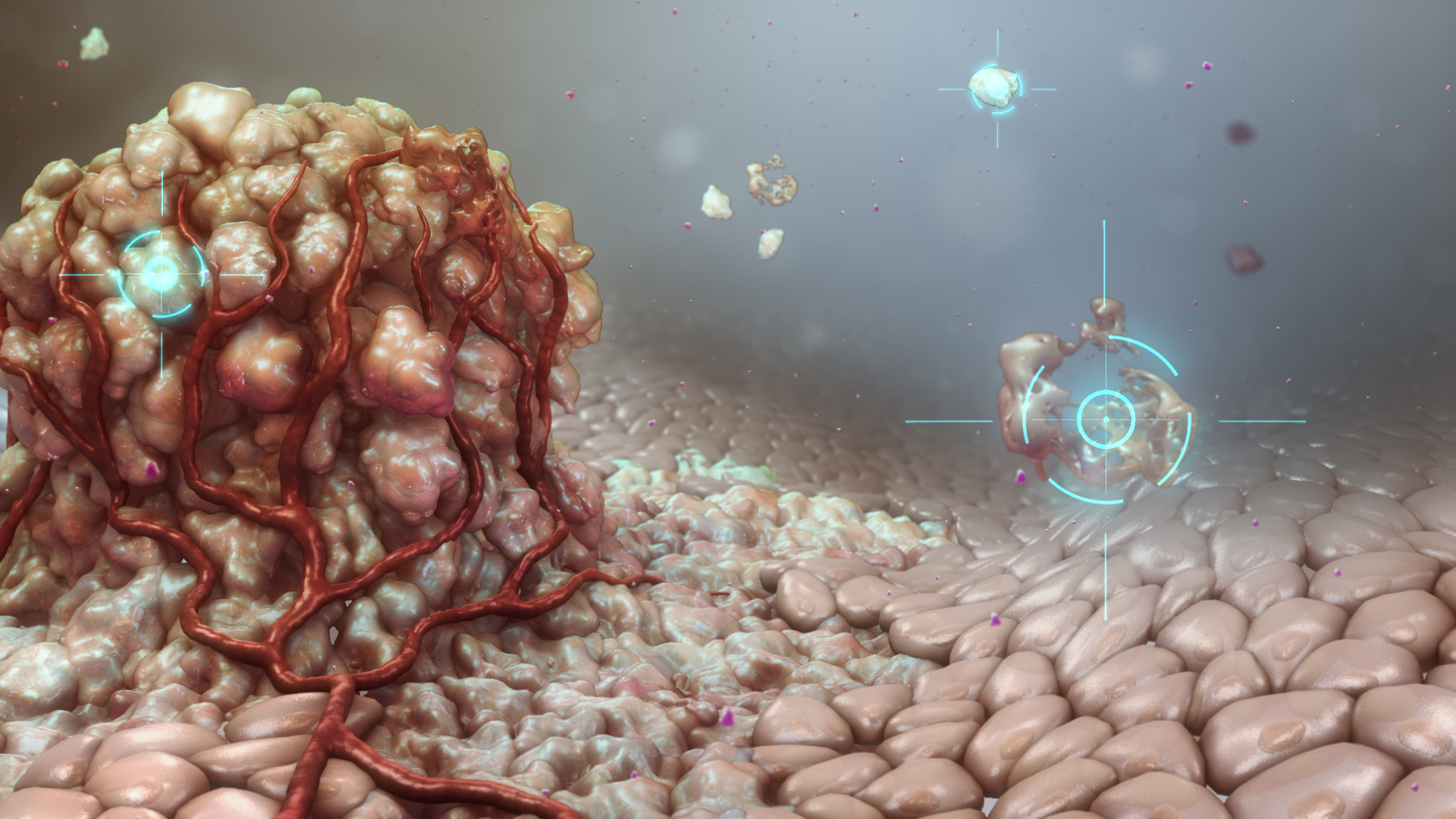Cancer’s Genes
The term “carcinoma” was coined by Hippocrates around 400 BC. The understanding of cancer mechanisms started in 1845 when John Bennett and Rudolf Virchow observed the abnormal accumulation of white blood cells in patients under a microscope. Despite that long history, molecular diagnosis and treatment of cancer is a relatively new strategy. And to date, no single drug has been identified that can cure all patients having similar cancers.
This is because cancer is an extremely heterogeneous disease. Two patients who have same type and stage of cancer are most likely to receive the same treatment. However, both might respond differently to it. Until recently, doctors didn’t know why. Now, after decades of research, scientists understand that tumors have genetic changes that cause cancer to grow and spread; and consequently, the changes that occur in one person’s cancer may not occur in others who have the same type of cancer. Also, the same mutations can trigger different types of cancer in different people. Tackling such a complex disease clearly need more effective strategies.
Personalizing cancer treatment strategies
Precision medicine approaches disease prevention and treatment on the basis of individual variability, environmental factors and lifestyle. Precision oncology (precision medicine of cancer) matches the most effective treatment for an individual cancer patient based on the genetic profiles of the cancer and the individual. Because every single cancer patient exhibits a different genetic profile, and the profile can change over time, therapeutic options need to be tailored to that individual. Scientists see a future when genetic tests will help decide which treatments a patient's tumor is most likely to respond to, sparing the patient from receiving invasive treatments that are unlikely to help.
Current research is focussed on testing the effectiveness of treatments that target the oncogenic mutations in tumors, irrespective of where the cancer develops in the body. Many of these treatments are drugs known as targeted therapies.

Identifying Genetic Changes in Cancer
A biopsy is done to collect suspected cancerous tissue. A DNA sequencer checks the sample for genetic changes that are making it grow. This process involves DNA sequencing, genomic testing and molecular profiling of the tumor.
If a targeted drug or treatment already exists for a particular cancer type, the patient will likely be tested for the presence of the genetic change that the treatment targets. For instance, people with melanoma, some leukemias, and breast, lung, colon, and rectal cancers usually have their cancers tested for certain genetic changes when they are diagnosed. Since additional genetic changes that can drive cancer may occur over time, you might also have your cancer tested if it comes back or gets worse.
What’s the scope?
Some key questions to assess the potential scope of this type of treatment are :
- Whether precision oncology is just a theory or whether it realistically assures a better treatment outcome?
- If truly promising, how can the application of precision oncology be improved and effectively implemented in the clinic environment?
Questions like these need to be addressed before Precision medicine gets mainstream, especially in oncology.
Much evidence supports the idea that precision oncology will benefit more patients than traditional chemotherapies, including:
- Some patients have already benefited from target-based therapies. One of the most notable examples is the discovery of the Bcr-Abl gene fusion in chronic myeloid leukemia (CML). Uncovering this genetic driver of CML lead to the development of a selective inhibitor of BCR-ABL, imatinib, which exhibited broader treatment coverage because, unlike other gene mutations, the Bcr-Abl gene fusion occurs in almost all CML patients. This compound improved the overall survival rates of CML patients to 90% over 5 years and 88% over 8 years.
Reference: Impact of comorbidities on overall survival in patients with chronic myeloid leukemia: results of the randomized CML Study IV - Many strategies are now available to identify important molecular targets for therapeutic intervention. Synthetic lethality is one unique strategy directed towards identifying cancer vulnerabilities. This strategy is based on the discovery that cell death is caused by a combination of deficiencies in the expression of two or more genes, whereas deficiency in only one of these genes can increase viability. These findings suggest that changes in gene A in cancer does not necessarily mean that gene A is the best target, but instead targeting its synthetic lethal partner might be a more effective strategy.
- Clinical trial design is evolving to compensate for tumor heterogeneity between patients. The Molecular Analysis for Therapy Choice (NCI-MATCH) is a clinical trial selecting treatments based on genetic features of patients, not on traditional tumor histology.
- The influence of new technologies such as the CRISPR/Cas system and cryo-electron microscopy (cryo-EM) will broaden and sharpen our ability to identify novel therapeutic targets for precision oncology. CRISPR/Cas technology enables controlled exchange, insertion and deletion of DNA sequences unlike spontaneous mutation, and can easily generate animal models that mimic mutations status of patients.
The future of precision medicine
Although several hurdles such as tumour recurrence as well as unexplained drug resistance and lack of effective ways to monitor response to therapeutic treatments, still hover unresolved over the field, precision oncology is highly promising. The challenge of tumor heterogeneity still needs to be overcome, but precision medicine is a relatively new field, and has been improving rapidly.

How Personalized Medicine Is Impacting Treatment of Various Diseases
Personalized medicine is about customizing the disease treatment as per the individual. It is a field of healthcare that takes into consideration an individual’s unique clinical information, environmental information, and most importantly, genetics. Read More..








